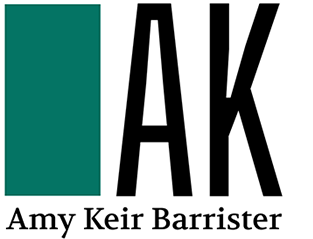I have not contributed much to the public debate on vaccination and what that means in the employment context. In part that is because the topic has been so well covered, and in other part that is because this period has been about dealing with unique contexts and sets of facts that don’t lend themselves well to generalisations.
What I’ve been interested in lately is the way in which corporates contribute to the public good, by championing causes like mental health, carbon zero, or LGBTQ inclusivity, and how the individual rights/responsibilities balance for employees must flex to accommodate these values. Workplaces are, after all, societies of their own, with rules and cultural nuances and, to a certain extent at least, assimilation is key to happiness, if not survival.
The question of vaccination is another example of corporate cultural leadership in practice. Vaccination is a private good (in that it protects the individual from serious disease), but perhaps more importantly, is also a public good. In New Zealand, we now know that high vaccination rates across the entire population is necessary to prevent further lockdowns and damage to our economy and way of life. Many businesses have offered incentives to employees to roll up their sleeve and get it done.
From a business perspective it is socially responsible to support efforts to get the population vaccinated, and it also makes good business sense. A business with vaccinated workers is less likely to be forced to rearrange its business plans with swathes of workers in self-isolation. A business that reduces its risk of the virus spreading in its premises is less likely to suffer the negative publicity caused by being a persistent “location of interest”.
But what of the stubborn few? Those who choose not to be vaccinated remain members of the society, and more importantly, employees with rights under the Employment Relations Act. There are two categories of those workers. The first is those in jobs where, by Government Order, they must be vaccinated. The ERA has made it clear that the termination of employment due to their unvaccinated status is justified if an appropriate process is followed.
The second category of workers is those who are not covered by a relevant Order. In those cases, the classic advice appears to be that the employer should perform a risk assessment (in consultation with employees) and determine whether the workplace-specific risk of contracting or spreading COVID19 requires a vaccine mandate. This process involves critically analysing the circumstances in the workplace, and measuring appropriate responses.
In my view, that analysis must be role specific – in a factory for example, the risk would be different for an Inwards Good Clerk than it would be for a Machinist – because each of these people are working in different areas of the factory, interacting with greater or fewer people, static or roaming, and able to a greater or lesser degree to use other risk management measures – such as PPE, social distancing, work from home etc. However, there is a complicating factor – if each of the employees work on the same site, the likelihood is they will use the same eating and bathroom facilities – so their environments will inevitably overlap.
As is always the case, if an employee is dismissed as a result of a ‘no jab, no job’ policy, there will necessarily be close examination of the employee’s individual circumstances. In my view, the Customs employee in the seminal ERA decision who refused to discuss her reasons for not vaccinating did herself a disservice – because she deprived herself of the opportunity to demonstrate that the particular circumstances of this case meant the decision was unreasonable. The employer of a needle-terrified employee might be expected to show efforts to support an employee to overcome that phobia. The employer of a person currently taking a course of some other medication might reasonably be expected to wait until that medication is finished before insisting on vaccination.
Yet, there is an elephant in the room. Is it justified for an employer to say “we don’t want your sort around here”? Must an employer rely on risk matrices to substantiate a decision to require its employees to be vaccinated. This is a very tricky question in an environment where the vaccination debate is increasingly values-laden, and concepts like the freedom to refuse medical treatment are regularly invoked.
We already recognise a number of scenarios where values make employees incompatible with a workplace. An employee who ‘refuses’ to be managed by a woman, or rejects colleagues of a particular race or ethnicity would not be welcome in most work places. A person who exercises their freedom of speech to ‘speak out’ against a gay colleague, or attack a person’s religious practice might find that the concomitant responsibility of respect leaves them out of a job. Employers can, and do, terminate the employment of people whose public behaviour is inconsistent with the corporate brand.
The flip side, of course, is that expectations of respect for difference demand that those who choose to decline a vaccination also be treated with respect. All people have the right to hold and practice their own beliefs – even where science might be against them – and it would be a rare case where a privately held belief should render a person so incompatible with a workplace that the employment can not continue.
In this way, vaccine considerations are more closely aligned to religion (which is cultural but choice (faith) based, not immutable), than to gender, sexuality or race (which are, at least broadly, inherent and not changeable). In cases of religious difference, employers are entitled to act based not on the religious belief per se, but there may be grounds to act on the expression of the belief where it is inconsistent with workplace requirements (eg an employee’s inability to work on a sabbath or unwillingness to work with particular clients). There may be an analogy here – ie there is a fundamental workplace requirement for vaccination.
In my view, where an employer can clearly articulate a rational basis for implementing a vaccine mandate, this could form the grounds for (at the end of a fair process) concluding that an employee’s employment can not continue – whether or not the rationale is rooted in health and safety grounds or not. Fundamentally, an employer could say ‘we believe the public good requires this, and we are taking a stand. This is our culture’.
The observant will have noticed that I have not addressed the case of those who ‘can’t’ be vaccinated, and for whom there is no ‘choice’ element to their unvaccinated status, and so discrimination concerns would again loom large. I have not because I understand they are a tiny proportion of the population, and their individual circumstances would require close consideration and probably medical advice in any policy implementation whether it be health and safety based or not.




